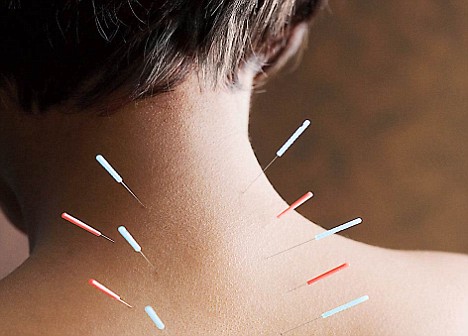Disease Theory and Progression in Chinese Medicine

By Toby Helmstetter, LAc
Every year, most people get at least one, and sometimes several, colds. Sometimes, especially in the winter, it may feel like there's a never ending string of colds, and it's easy to spend more time feeling sick or fighting off sickness, than feeling well. Our western paradigm gives us good information to help us understand what is happening when we continue to get sick--weak immunity coupled with strong pathogens and repeated exposure creates continual sickness. I thought I'd share with you, in honor of cold and flu season, what the disease paradigm looks like in Chinese medicine, and how to use that model to help you overcome colds and prevent recurrence.
The theories in Chinese medicine of how people become sick has actually evolved over the centuries. Pathogens were thought to come from various sources, and you could "catch" them in various ways. In general, there are two types of what we call pathogenic factors: external pathogens, which are our infectious diseases--viral, bacterial, fungal, parasitic; and internal pathogens, which are diseases that comes from internally generated conditions--mainly, diet and emotions. Both internal and external pathogens have the potential to cause disease, and they have the potential to interact with one another which, if improperly treated, can create more serious conditions. When we seek to diagnose a condition according to the theories of Chinese medicine, it's important to determine whether we have an internal or external pathogen at the root of the problem.
How a disease progresses is also important. In Chinese medicine, every cold, flu, or infection has to be treated appropriately in order for it to come to full resolution. If that doesn't happen--if a condition is allowed to linger, goes untreated, or is treated improperly--it can potentially become something more serious. How does that happen? Whenever we encounter a pathogen, our bodies begin to negotiate with the illness. The body has to decide whether it has the strength and the resources to fight and expel the pathogen, and if it doesn't, it has to decide where in the body it is going to put it. Remember, pathogens can be external or internal in nature. It can be a serious viral infection, like mono, or an overwhelming emotional trauma. Either way, the body fights valiantly to release it until it's either out of the body or somewhere else, shuttled away until it can deal with it later.
"Dealing with it later" is a complicated situation. The body will shuttle the pathogen away, doing its best to keep it away from our internal organs. It will move the pathogen deeper and deeper in the body until we become asymptomatic. The trouble is, the pathogen isn't gone, it's latent. In a normal, healthy body, pathogens come in and are dealt with efficiently. But when pathogens become latent, when our bodies can't deal with them, it becomes a problem for another part of our bodies to deal with. Where the body puts it depends on the severity of the pathogen, and the relative strength of our body, mind, and spirit. Eventually, the pathogen will emerge as another problem altogether, or it can simply remain latent for the rest of our lives.
It all sounds kind of bleak when you think about it, or at least it did to me when I learned about this whole concept of latency. But then I realized a few things about it. One, is that we're all walking around with some latency, and by in large, we're making it just fine. The other, is that by using Chinese medicine, we are giving our bodies the chance to release that latency, no matter how chronic it is. And, when we have an acute situation, like a cold or flu, it's really an opportunity to strengthen our immune system and heal some of that old latency too.
So, knowing all that, what is the best way to deal with a cold or flu when it comes up? How can we maximize the situation so our bodies are stronger for it in the end? When you get sick, the first thing you can do is call your acupuncturist! She or he can prescribe an appropriate herbal formula right away to help your body fight the pathogen quickly and effectively. It will also cut down on a lot of the uncomfortable symptoms. In general, Chinese medicine recommends that you don't suppress the symptoms. A lot of the over the counter medicines do a lot to suppress the congestion, the fever, the cough, but all of those are your body's mechanisms for expelling the pathogen. That's not to say that you endure the misery, but that you find ways to treat them that relieve symptoms and make them more efficient. How? Drinking lots of fluids for one. Hydration provides the fluid medium on which the pathogen can ride out, so to speak. If you have a fever below 104 (and you're an adult), stay warm and try to sweat it out before you suppress it with an antipyretic. Take a hot shower or bath, drink a hot cup of tea, and bundle up under the covers until you break a sweat. The fever should break and you'll feel a lot better for it. Eat warm, cooked food rather than raw, cold or overly sweet things. Supporting your digestion in this way keeps your whole body strong, and sugar depletes our reserves of Vitamin C, our most important mineral when we're sick. And of course, rest. Resting gives your body the time and resources to fight the battle and rebuild itself afterwards. Generally our lives don't provide much space for that rest, but it will be worth it. Knowing how pathogens can evolve in our bodies according to Chinese medicine can help you make your healing a priority when it comes up. And that may be the best medicine of all.


